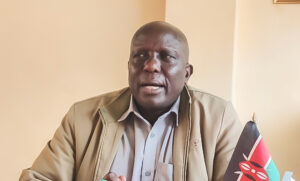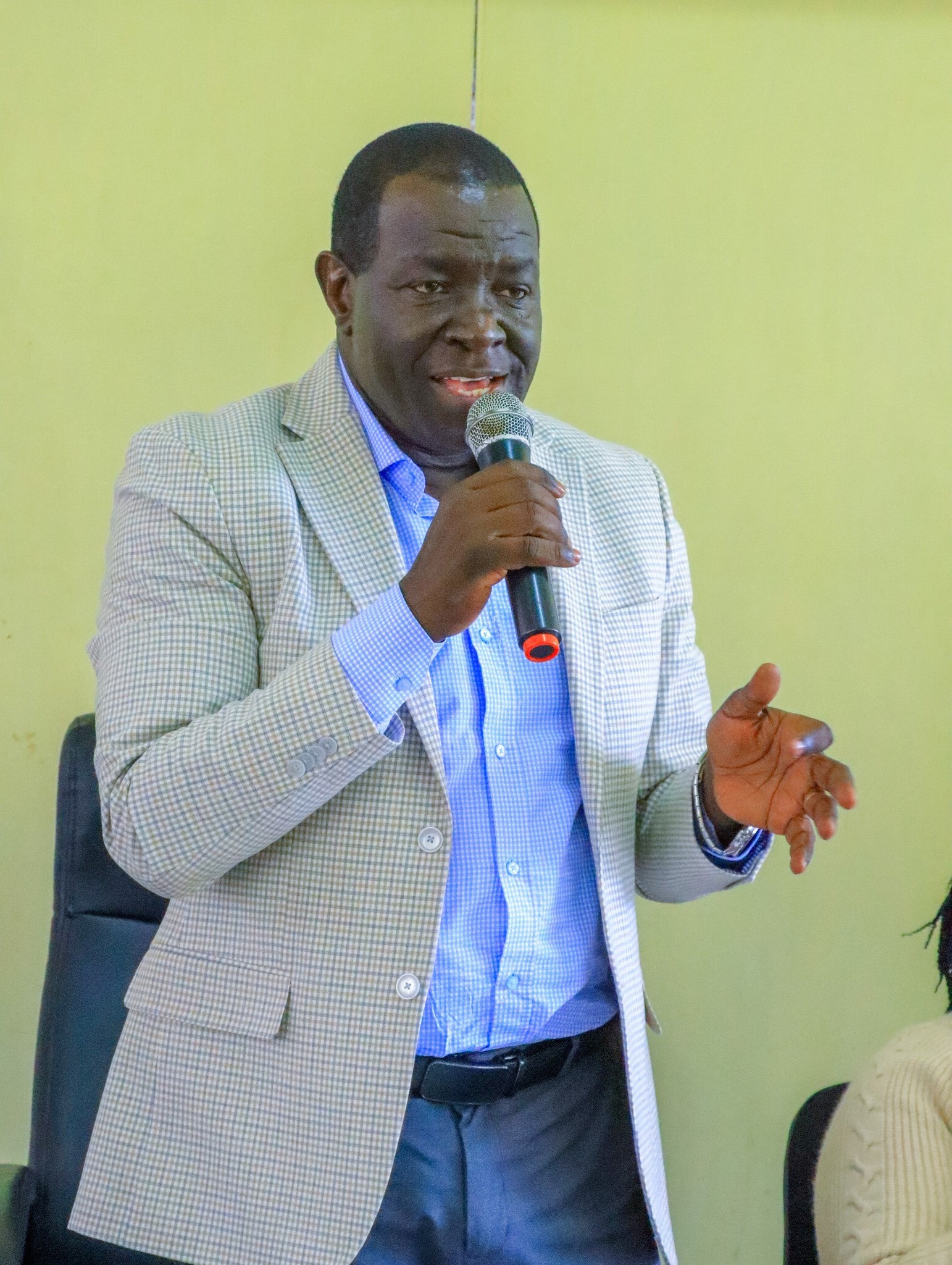
By Arnold Ageta
Nyamira Branch KNUT Executive Secretary, Evans Obiri, has criticized the government’s plans to end school capitation, stating the move will cripple the education system and make it unaffordable for ordinary citizens.
Speaking to the press on Tuesday afternoon, Obiri lamented that the government has not considered the prevailing economic hardships in the country.
“Courtesy of the Finance Bill, the introduction of new taxes and the hiking of pre-existing taxes have made life difficult for people,” he noted.
He believes the government is ignoring the plight of the poor.
“It’s ironic that the government claims it cannot sustain free basic education while simultaneously splashing millions across the country on ’empowerment programs’ yet wants to stop school capitation,” he remarked.
He further stated, “The same government unable to fund free basic education is issuing money to various groups as empowerment.”
Mr. Obiri advocates for the restoration of school capitation, emphasizing its crucial role in promoting education and providing equal opportunities for all.
“Education is the universal equalizer and a human right for children that must be protected at all costs to safeguard our future,” he asserted.
Mr. Obiri added that most schools, which have historically relied on capitation to operate, are now at risk of collapse if the government proceeds with this plan.
“How will heads of institutions run schools without capitation? Will poor parents afford school fees for their children?” he questioned.
Last Thursday, during an appearance before the National Assembly Committee on Education to discuss education financing, Treasury Cabinet Secretary John Mbadi stated the government would reduce annual secondary school capitation from KSh 22,244 to KSh 16,428 per student.
Additionally, the CS mentioned plans to retrench university staff and close satellite campuses to save money.
These statements have sparked outrage among Kenyans, given the precarious state of the education sector and the urgent need for more funding.
For students from impoverished backgrounds, the announcement has caused significant anxiety about their future.
However, the CS was quoted by national media claiming the government is unable to fund free basic education because it is no longer viable or sustainable.
In a contradictory statement, Education Cabinet Secretary Migosi Ogamba affirmed that the government’s policy on capitation allocation for secondary school students remains unchanged, despite growing concerns over reduced funding at the school level.
Addressing the press in Kisii County, CS Ogamba stated that the ministry’s official allocation per student remains at KSh 22,244, the figure set under the Free Day Secondary Education (FDSE) programme, but acknowledged budgetary constraints in meeting this figure due to the increased number of learners.
Ogamba is proposing the consolidation of all education bursaries to accommodate the growing student enrollment.
On his part, Mbadi has blamed Parliament for the persistent shortfall in school capitation funds, asserting that lawmakers are responsible for approving budgetary allocations that are insufficient to fully support learners in public schools.
In what appeared to be a retraction of his earlier statement, Mbadi said, “So the only thing I did yesterday was to confirm that yes, we have allocated so much budget and we are giving it in full. But it is not enough to give every child in Kenya KSh 22,000.”
He however revealed that the Treasury has never been able to fully meet the target of KSh 22,000 per learner. Mbadi further dispelled what he termed as misinformation surrounding the history of free secondary education in Kenya.
In a public engagement on Monday, CS Ogamba clarified that the Ministry of Education has not proposed or implemented any reduction in capitation funding for learners, contrary to current claims.
“Nobody has ever said that we are reducing the money from KSh 22,000 to KSh 16,000. I don’t know where that came from,” said Ogamba. “Even my colleague never said anything close to that.”
Mr. Obiri has insisted that the government needs to be considerate and halt these plans, ensuring that capitation is paid in full and even increased.
He fears that if capitation is affected, there will be massive school dropouts leading to decreased enrollment.
“This is a grave mistake that will cause many students from poor families to drop out of school and engage in unlawful activities, bearing bitter fruits for society,” he warned.
He observed that since the start of free basic education in Kenya, student enrollment has increased considerably, demonstrating its positive impact.
“I am asking the government to reconsider its plans and prioritize education because it opens several avenues for self-reliance in many ways,” he concluded.



